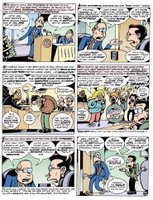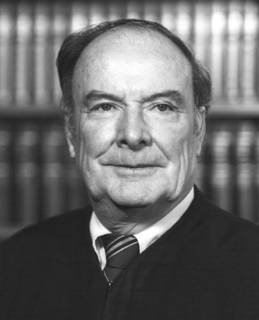An article from Tucson law professor David Wexler:
Therapeutic Jurisprudence and the Rehabilitative Role of the Criminal Defense Lawyer
In this article, I will identify the potential rehabilitative role of the attorney from the beginning stages -- possible diversion, for example -- through sentencing and even beyond -- through conditional or unconditional release, and possible efforts to expunge the criminal record.
Or perhaps "habilitative" for the percentage of clients who were never habilitated the first time.
In the area of criminal law, the practical side of therapeutic jurisprudence has, to date, been reflected more in judicial activity than among the practicing bar... Since judges are in an enviable position to influence local legal culture and climate, it is likely that courts will encourage the development of a criminal law bar attuned to these concerns. Indeed, even without a push from the judiciary, some lawyers have begun to practice criminal law in a specifically therapeutic key. Mostly, interested lawyers will likely augment a traditional criminal law practice with the more holistic approach suggested by therapeutic jurisprudence, and the present article seeks to point interested practitioners in that direction.
I'm of two minds about this, most decidedly. One side is the therapeutic lawyer, getting my client probation and some programs, suggesting some ways to lift that monkey off his back. Tempermentally, and as for wanting the best outcomes for my clients, that side suits me very well. The other mind, though, belongs to the lawyer sworn to be a zealous advocate, standing in the breach and poking holes in the government's case, finding ways to get the client off, jurisprudentially speaking.
Particularly when it comes to beating substance abuse, I'm almost ready to say, by any means necessary. Ever seen how your clients look healthier when they've been off the street a few days? I've been in the position at the meetings before Drug Court, knowing that it could do a strung-out or spun individual client some good to stay in jail a bit longer, yet advocating my client's desire to get out and be free. I know, possibly free to use again - talk about your "negative freedom."
But it's a problem when the Drug Court offer comes before discovery comes, before the lab test comes, before any meaningful chance to vet the case for defenses and suppression issues, and when the price of admission is a guilty plea. The client has to roll the dice, and if he opts out or washes out of Drug Court, it's case closed.
When the therapeutic authorities come to push, some times clients shove back. Some clients reject Drug Court, which is stickier for them after they've signed up for the program. That's when the iron hand of coercive rehabilitation comes into view, with "graduated sanctions." I'm always going to be skeptical of government officials saying, "we've punishing you for your own good." Paradoxically, though, in the case of problem-solving courts, and with substance abuse, there's some scholarly support for the claim that it works. I want my clients to be free of cops and addiction. What's a criminal defense lawyer to do?
Reminds me of the time the juvenile prosecutor told my juvenile deputy, "you don't get it: we have to convict your client before we can help her!"
(The historian and critical theorist Christopher Lasch had more than a few interesting things to say about the ways that the therapeutic state can override liberty interests and clients' freedom.)
Link via CrimProf Blog.








